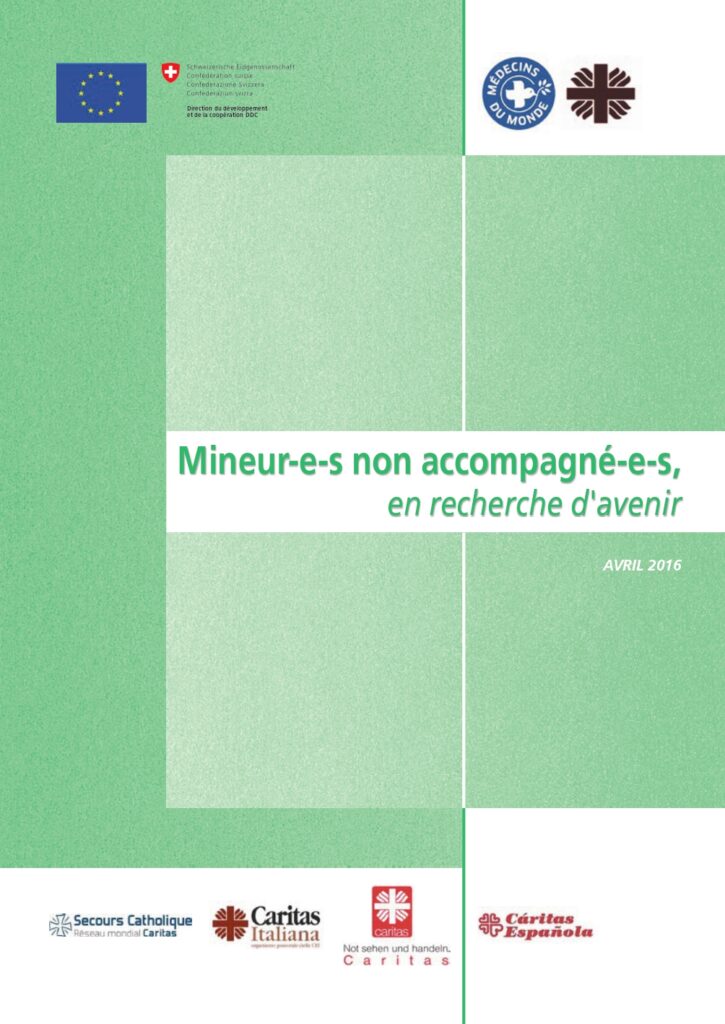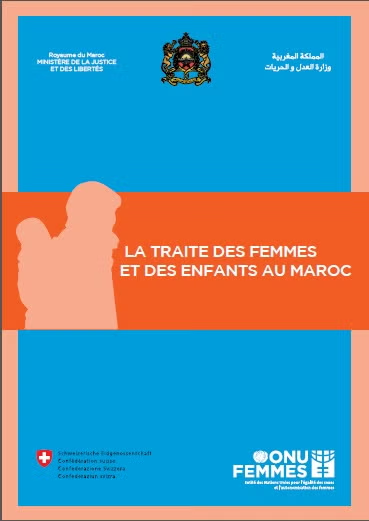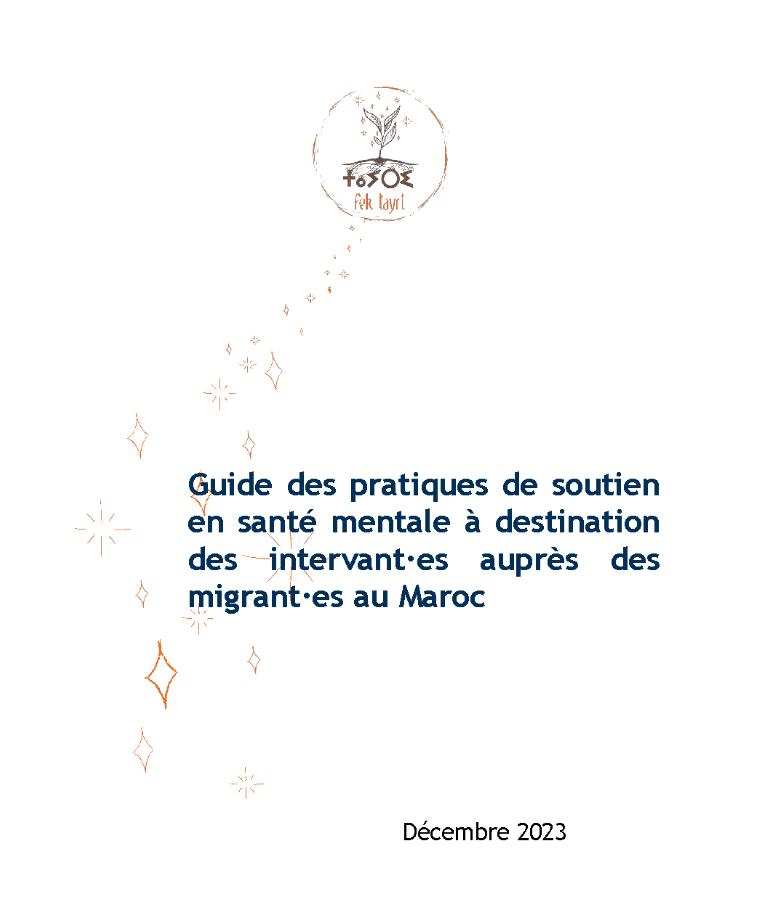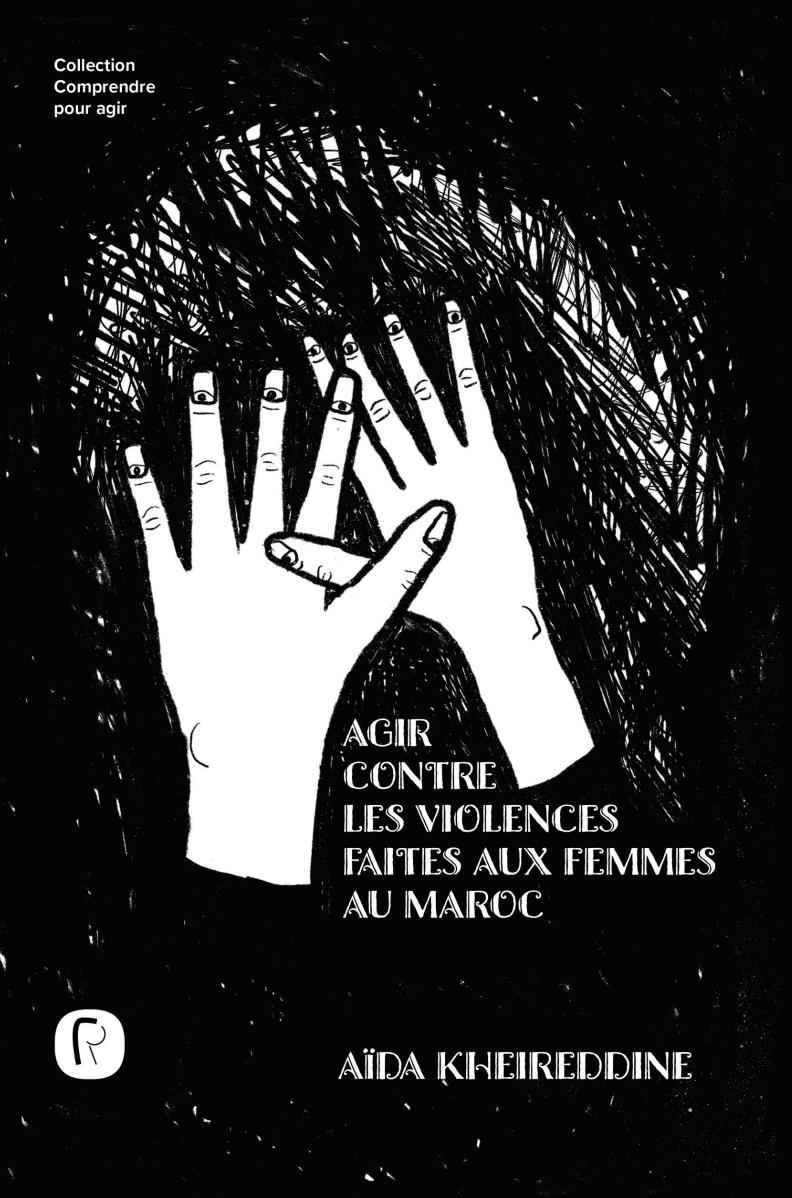Summary
In 2016, a comprehensive study was carried out for Caritas Morocco and Médecins du Monde Belgium to assess the situation of unaccompanied minors (UMs) in Morocco. The study, co-coordinated by Aïda Khireddine under her former consultancy firm CD-BE, was commissioned by Caritas Morocco and Médecins du Monde Belgium, with financial support from the European Union, the Swiss Cooperation, Caritas Spain, Caritas Italy, Caritas Germany, and Secours Catholique—members of the Caritas international network. The research focused on children and youth, primarily from Sub-Saharan Africa, travelling alone and facing Increased vulnerability. Their migratory trajectories are marked by significant risks and challenges, exposing them to exploitation, violence, and social exclusion.
The study sheds light on the diversity of profiles among unaccompanied minors, their aspirations, and the complex challenges they face in Morocco—a country frequently perceived as a transit zone en route to Europe. Four primary profiles emerged from the analysis: youth in pursuit of opportunity (“adventurers”), those in a state of aimless movement (“wanderers”), victims of trafficking, and individuals whose hopes were undermined by deception and fraud. Despite their differing trajectories, all are confronted with precarious living conditions, whether in urban areas or at border zones.
Adopting a participatory approach, the research drew upon powerful first-hand accounts from unaccompanied minors, complemented by interviews with families, public authorities, and civil society organizations. The findings highlight significant gaps in Morocco’s legal and policy frameworks on migration, despite formal alignment with international conventions. Although the National Strategy on Immigration and Asylum (SNIA) and the Integrated Public Policy on Child Protection (PPIPEM) represent important avenues for progress, their implementation remains insufficient to adequately meet the existing needs.
Key recommendations focus on the integration of unaccompanied minors’ rights into national public policies, the reinforcement of operational capacities among frontline actors, and the development of tailored, context-specific support mechanisms. The study calls for coordinated and sustained collective efforts to ensure a more dignified and rights-based future for these young people.
This publication serves as an advocacy tool to raise awareness among policymakers and social stakeholders, promoting a holistic and humanistic approach toward a population too often left in the shadows.

Author
Date de publication
Themes




